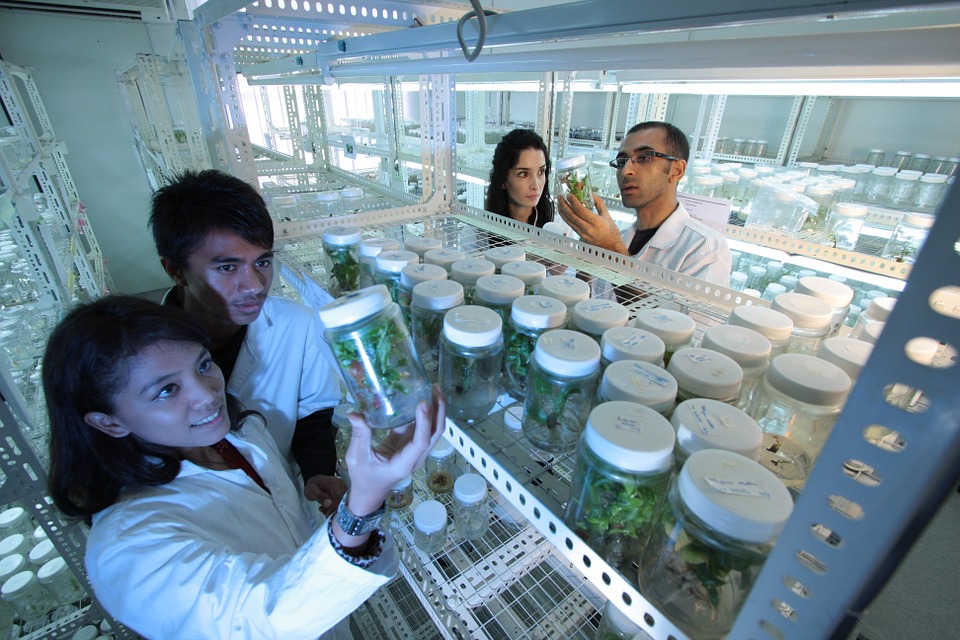
Food science is the applied science devoted to the study of food. The Institute of Food Technologists defines food science as "the discipline in which the engineering, biological, and physical sciences are used to study the nature of foods, the causes of deterioration, the principles underlying food processing, and the improvement of foods for the consuming public". The textbook Food Science defines food science in simpler terms as "the application of basic sciences and engineering to study the physical, chemical, and biochemical nature of foods and the principles of food processing".
Activities of food scientists include the development of new food products, design of processes to produce these foods, choice of packaging materials, shelf-life studies, sensory evaluation of products using panels or potential consumers, as well as microbiological and chemical testing. Food scientists may study more fundamental phenomena that are directly linked to the production of food products and its properties.
Food science brings together multiple scientific disciplines. It incorporates concepts from fields such as microbiology, chemical engineering, and biochemistry.
Some of the subdisciplines of food science are described below.
Food chemistry is the study of chemical processes and interactions of all biological and non-biological components of foods. The biological substances include such items as meat, poultry, lettuce, beer, and milk as examples. It is similar to biochemistry in its main components such as carbohydrates, lipids, and protein, but it also includes areas such as water, vitamins, minerals, enzymes, food additives, flavors, and colors. This discipline also encompasses how products change under certain food processing techniques and ways either to enhance or to prevent them from happening.
Food physical chemistry is the study of both physical and chemical interactions in foods in terms of physical and chemical principles applied to food systems, as well as the application of physicochemical techniques and instrumentation for the study and analysis of foods.
Food engineering is the industrial processes used to manufacture food.
Food microbiology is the study of the microorganisms that inhabit, create, or contaminate food, including the study of microorganisms causing food spoilage. "Good" bacteria, however, such as probiotics, are becoming increasingly important in food science. In addition, microorganisms are essential for the production of foods such as cheese, yogurt, bread, beer, wine and, other fermented foods.
It deals with the study of microorganism in food. It includes study of microorganism in food causing food spoilage, food poisoning and food infection. it also include method of food preservation like canning, freezing, drying, pasteurization, radiation. it also includes cleanliness and sanitation in food microbiology. Some microorganisms are use in preparation of food like deli, cheese, pickles,and breed some microorganisms have high content of protein and vitamins.
Food packaging is packaging of food to preserve food after it has been processed and contain it through distribution. Its main objective is to provide physical and barrier protection for food. In most cases food packaging contains labels bearing nutritional and other information about the specific food. Food packaging is mostly done by using packaging machines.
Food preservation involves the causes and prevention of quality degradation.
Food substitution refers to the replacement of fat, sugar, or calories from a product while maintaining similar shape, texture, color, or taste.
Food technology is the technological aspects. Early scientific research into food technology concentrated on food preservation. Nicolas Appert?s development in 1810 of the canning process was a decisive event. The process wasn?t called canning then and Appert did not really know the principle on which his process worked, but canning has had a major impact on food preservation techniques.
Molecular gastronomy is the scientific investigation of processes in cooking, social and artistic gastronomical phenomena. Molecular gastronomy is a subdiscipline of food science that seeks to investigate the physical and chemical transformations of ingredients that occur in cooking. Its program includes three axis, as cooking was recognized to have three components, which are social, artistic and technical.
New product development includes the invention of new food products.
Quality control involves the causes, prevention and communication dealing with food-borne illness.
Sensory analysis is the study of how consumers' senses perceive food.
Source : Wikipedia